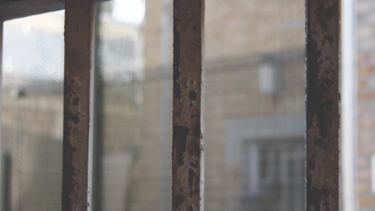Annual reports covering facilities from Dover to Durham published by volunteer watchdog bodies
Several new annual reports covering immigration detention facilities in the UK have recently been released by various Independent Monitoring Boards (IMBs).
IMBs are watchdog bodies staffed by volunteers that monitor conditions at all prisons in England and Wales and all places of immigration detention in the UK.
 Last week, the North East Midlands, Yorkshire & Humberside IMB published its annual report on the region's immigration short-term holding facilities (STHFs). You can download the 35-page report here.
Last week, the North East Midlands, Yorkshire & Humberside IMB published its annual report on the region's immigration short-term holding facilities (STHFs). You can download the 35-page report here.
Based on its findings, the IMB called on the new Labour government to change immigration detention practices with regard to the confiscation of medicines from people placed in STHFs and with regard to reception interviews being conducted in non-confidential open areas.
Dominic Byrne, Chair of North East Midlands, Yorkshire & Humberside IMB, said: "In many cases, we find ourselves having to raise the same concerns time and time again. These issues show a lack of concern for people's health and wellbeing. In the Board's view, it is inhumane to remove people's medicine from them, preventing them from taking their prescribed doses. It is also shameful that interviews covering sensitive and personal matters are conducted in a non-confidential setting and can be overheard."
Byrne called on Home Office ministers to take a fresh approach to the issues raised by the IMB, as previous ministers had either ignored the IMBs recommendations or responded at a 'glacial pace'.
Earlier this month, the North West and Midlands IMB covering STHFs in the region published its 62-page annual report, available here. It covers facilities in Birmingham, Manchester, Liverpool, Holyhead, and Loughborough.
The Board reiterated its concern that detained individuals are still being denied access to their prescribed medication while in holding rooms.
The report states: "For the sixth year in succession, the Board repeats its concern at the lack of proper procedures which would allow [detainee custody officers] or other qualified personnel to provide detained individuals with access to their prescribed medication. The Board continues to note that the welfare of detained individuals has been adversely affected by this situation. This occurs particularly in holding rooms and reporting centres. The Board understands that a process has begun to address this issue but is disappointed as to the amount of time that is being taken to solve this problem.
"The Board were informed about an incident at Salford (Dallas Court) holding room from November 2023 – a detained person required his injection of insulin for diabetes. Staff could not administer it, an NHS ambulance was called, and the detained person was taken to the local A&E where staff refused to administer it on the detained person's behalf. He was allowed to administer it himself under their supervision."
At the end of July, the Kent Coast STHF IMB published its annual report for 2023. The 23-page report can be downloaded here. It covers facilities at Western Jet Foil (WJF) and Kent Intake Unit (KIU) in Dover, and Manston near Ramsgate.
Among the report's key finding, the IMB felt that detained people were often confused during their time spent at WJF because they did not have a clear understanding of the processes involved. At KIU, the IMB was concerned that interviews were not held privately which would make it more difficult for detained persons to reveal personal information which might be relevant to vulnerabilities, potentially causing a risk to their welfare. At Manston, the IMB found that detained people still appear to be at a loss of what exactly the procedures for release are and were unsure where they will be taken to and for how long.
More positively, the report notes: "Whenever the Board have visited, all staff have been observed to be courteous, empathetic, and often attentive to the needs of the people detained. The Board observed that the processes at WJF have improved for getting detained people into dry clothes, something to eat and the provision of water. Numbers during this reporting year have not been as large as the previous year, so this made the environment more acceptable. There has been an increase in staffing, and accommodation has improved."
Also last month, the IMB's Charter Flight Monitoring Team (CFMT) annual report was published, which is available here. The CFMT looks at the treatment of people being removed from the UK under immigration powers on chartered flights.
Lou Lockhart-Mummery MBE, the chair of the CFMT, noted: "The process of enforced removal is stressful. It is the responsibility of Home Office Immigration Enforcement to ensure the distress caused to those being removed is minimised and that people are treated humanely and fairly. The report gives examples of poor practice and we hope that the Home Office will act to improve both its own and its escort contractor's approach."
Finally, the IMB at Derwentside Immigration Removal Centre released its annual report in mid-July. The 29-page report is here.
Derwentside is a female only immigration detention centre located in County Durham. The IMB notes that it is a remote location and a high proportion of the detained women are considered to be 'adults at risk', with mental health illnesses.
IMB Derwentside Chair, Jane Leech MBE, said: "We continue to question Derwentside's suitability as a removal centre. Many of the women detained there – without a legal time limit – are vulnerable and some will have been trafficked. And yet they are subjected to lengthy and frequent journeys, sometimes at night, which can cause increased anxiety and disorientation. In our view, the way women are moved around the estate risks increasing the harmful effects of detention."